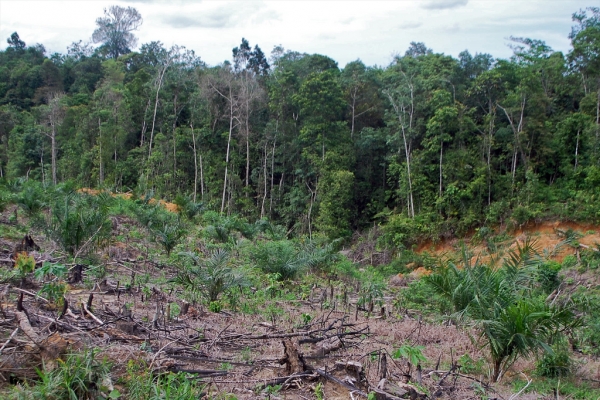
On April 29th until May 2nd, The Forests Dialogue (TFD) will bring Indonesian communities, NGOs, companies and government officials together with international organizations in the Riau Province of Sumatra to discuss the implementation of deforestation-free commitments in the region. Co-convened by the Indonesian Business Council for Sustainable Development (IBCSD), the goal of this meeting is for stakeholders to better understand the impacts that the groundswell of multinational consumer goods and forest products corporate commitments are having on the ground so that they can improve policy design and implementation.
Indonesia has some of the highest deforestation rates in the world, and this loss of forest, combined with forest fires and peatland degradation, comprise the majority of Indonesia’s greenhouse gas emissions. Much of this forest conversion has been driven by the global demand for palm oil and pulp and paper, putting several US and European-based companies at the center of environmental campaigns led by groups like Greenpeace and Rainforest Action Network. These companies have responded to the pressure in a variety of ways, establishing voluntary policies to address the sustainability of their supply chains and using a variety of tools like RSPO and FSC certification and High Carbon Stock assessments to guide implementation.
How these policies have impacted forests, the communities that depend on them, and the trajectory of sustainable development in Indonesia is unclear. Translating a high level policy down a complicated supply chain into actionable steps with measurable results is challenging. How issues of land tenure security and conflict for smallholders and indigenous peoples who live within these forest areas and often supply large companies remains to be seen. Reforming laws, regulations, governance and land use planning to enable protection of forests while enabling economic growth is complicated.
The Riau Dialogue, co-chaired by IBCSD, WWF, the Sustainable Trade Initiative (IDH), and the World Resource Institute, will explore these uncertainties. Using TFD’s trademark neutral platform of fair and balanced dialogue, global and local actors will join together in the field to see first-hand at how oil palm and forest plantations under deforestation-free commitments are being managed and to hear directly the perspectives of local communities, government agencies and businesses. Through these discussions, TFD organizers hope to build momentum around technical and policy solutions to address specific challenges.
Findings from the Dialogue will be shared in publications and will help frame subsequent dialogues on “Understanding Deforestation-Free” in Africa and Latin America over the coming year. From these efforts, a series of consensus recommendations will be created and developed into a concrete action plan with partners.
